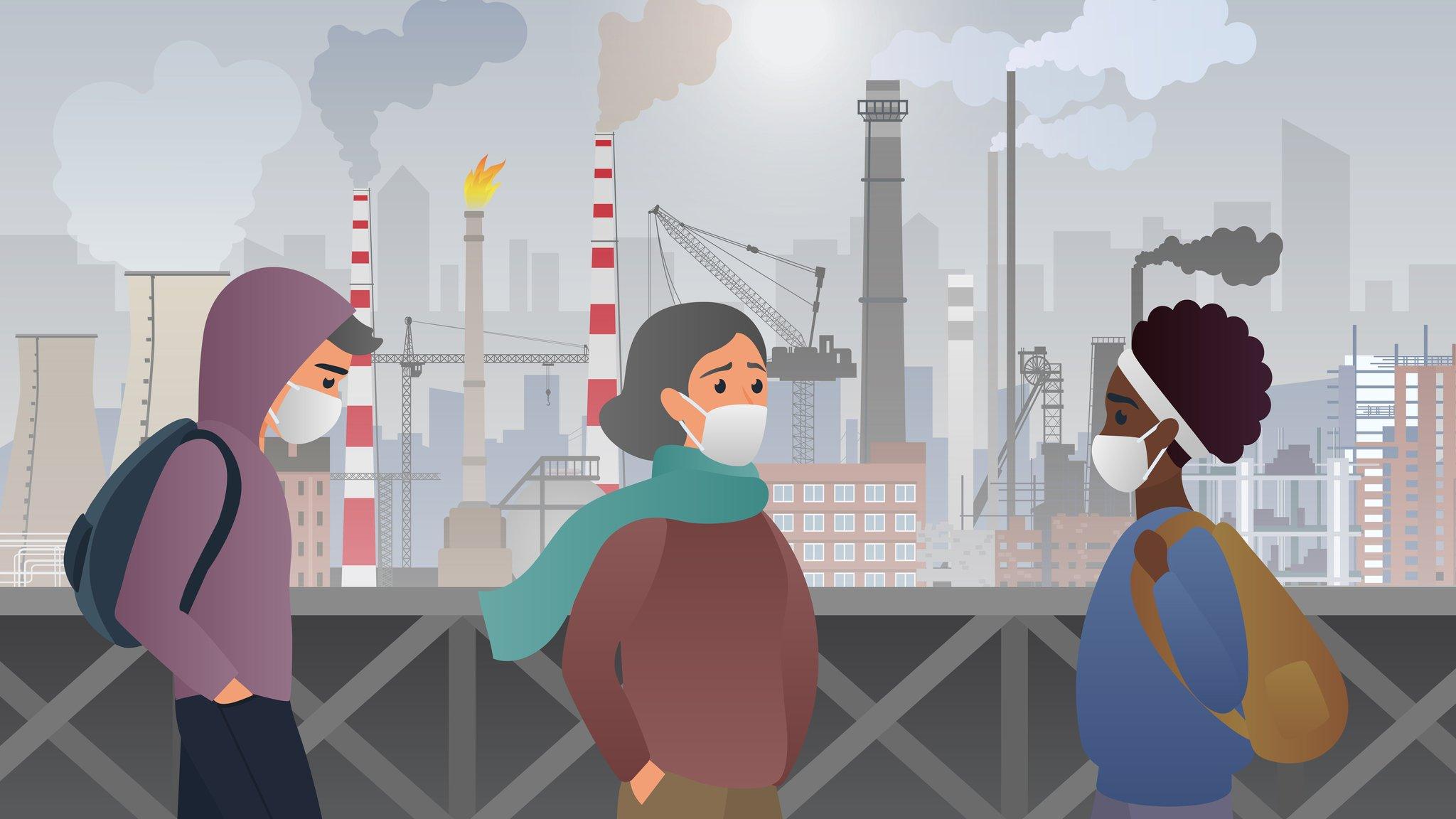Beijing covered in thick orange dust cloud with 'hazardous' pollution levels
- Published
- comments
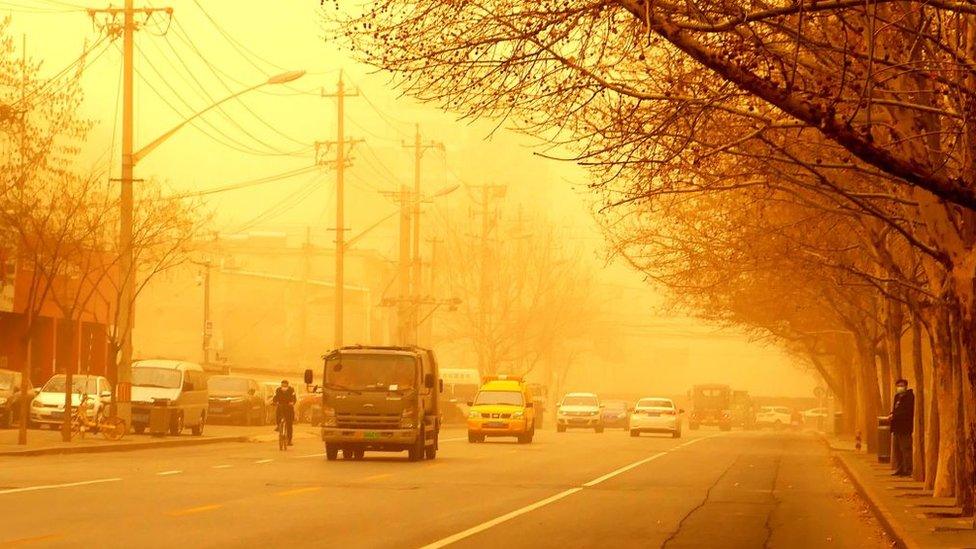
Nope this isn't a filter, the sky really did turn orange in Beijing!
A huge sandstorm has hit Beijing, the capital city of China, causing skies there to turn orange.
The China Meteorological Administration announced a yellow weather alert on Monday morning, their second highest alert level, and said that sand and dust had blown over from parts of Mongolia and north-west China.
This has caused problems for the millions of people living there, as the sand and dust has combined with the city's high air pollution levels, making the air difficult to breathe.
Beijing's government has ordered that all schools should cancel outside sport and activities, and has advised that people with breathing difficulties should stay inside.
They have also encouraged people to wear goggles and facemasks to protect themselves from the dust and air pollution.
What is air pollution and how is it measured?
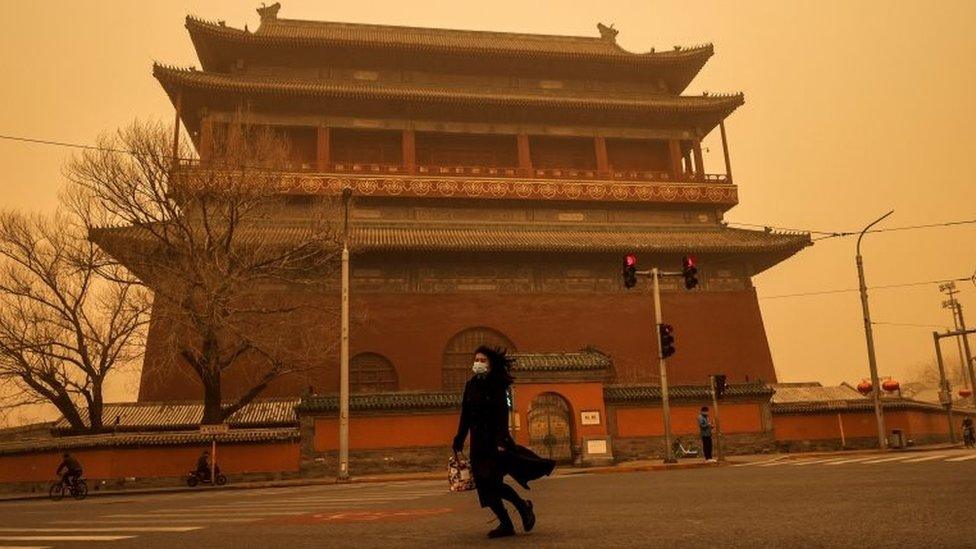
Air pollution is the name for tiny particles and gases in the air which can cause harm if you breathe them in.
Polluted air can come from things like car exhaust fumes and factories burning fossil fuels.
Pollution can be measured in different ways, but the World Health Organization (WHO) use a scientific measurement called PM 2.5.
This measures the amount of pollution particles in the air which can be breathed in.
They recommend that 10 micrograms is a safe amount in a year.
On Monday morning, levels of more than 600 micrograms were recorded in parts of Beijing, with an average of 200 micrograms recorded over 24 hours.
The sandstorm also blew in larger particles which are classed at PM 10, which reached levels of more than 8,000 micrograms according to state media.
Why has this happened and what's being done to help people?
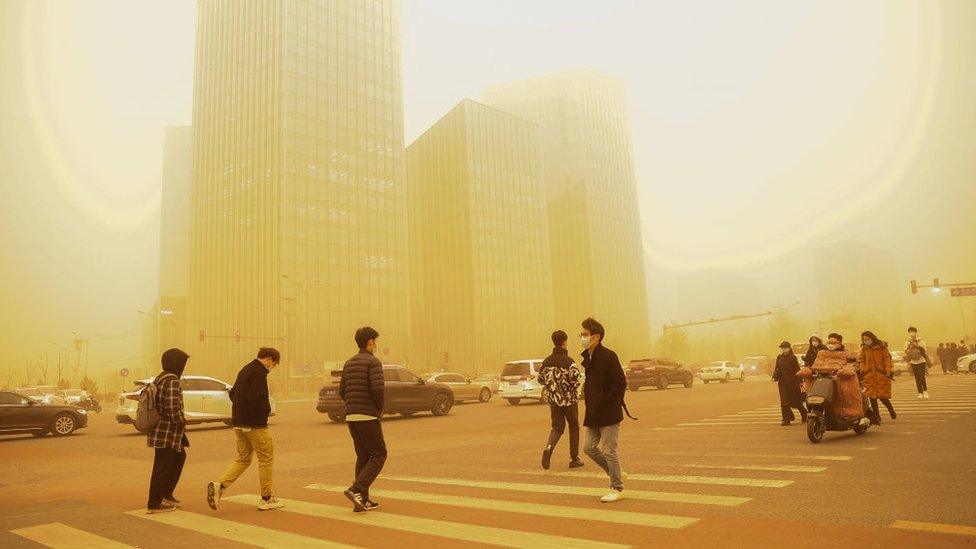
People have been told to wear masks and eye protection if they have to leave thier homes
It is not unusual for Beijing to experience sandstorms around March and April, and they are usually the result of wind currents blowing sand from the Gobi desert.
One environmental issue which has made this worse however, is deforestation - the deliberate destruction of trees for human use.
In order to help combat this, Beijing has planted a "great green wall" of trees.
They hope it will help to trap dust blowing towards the city, and even help to steer it away using air corridors that channel the wind.
In 2014 China's government said they were working hard to reduce the amount of pollution in the air.
Since then they've been trying to close down some coal-burning factories, and limit the amount of traffic on roads.
- Published21 December 2016
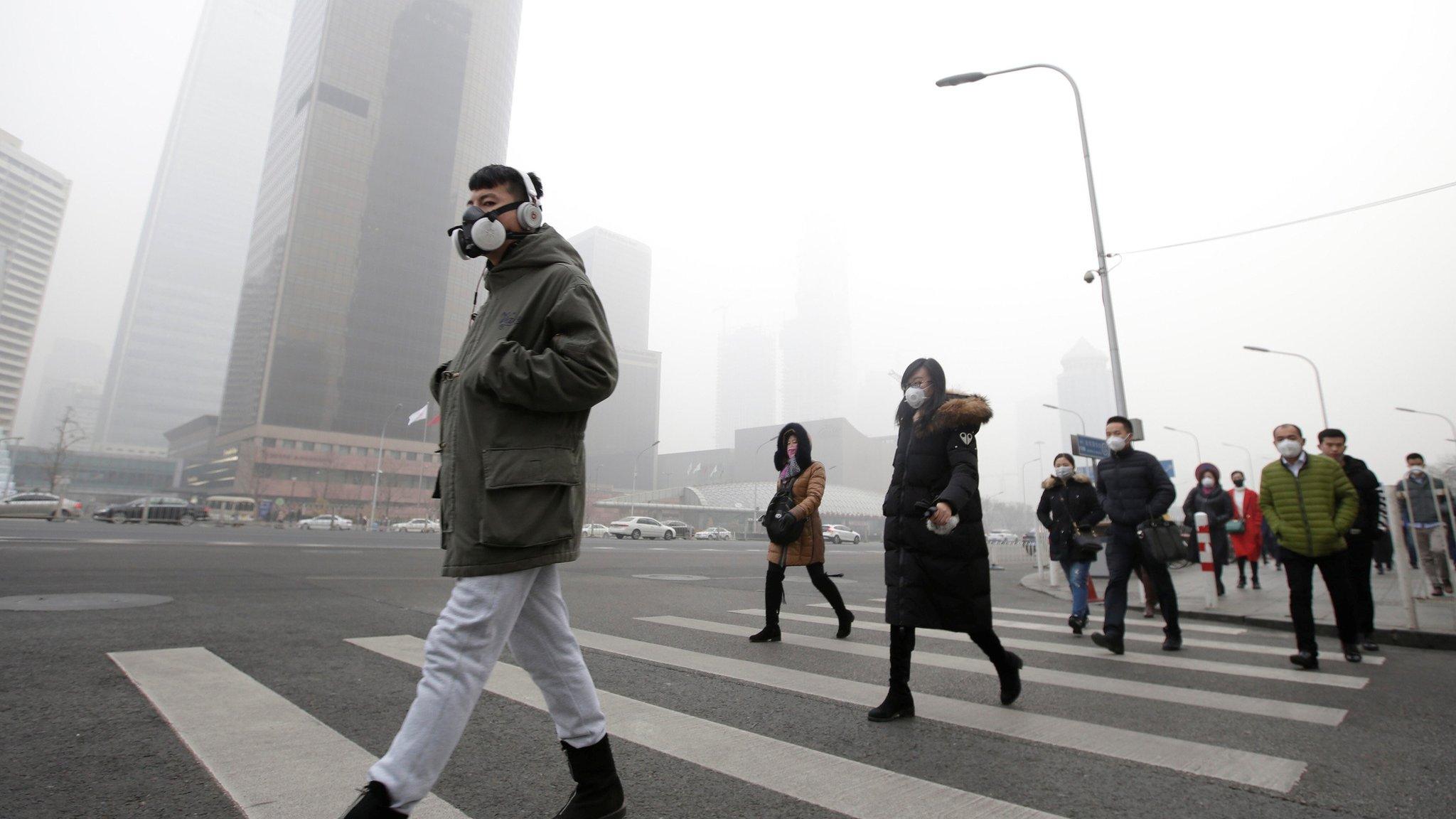
- Published30 April 2020
